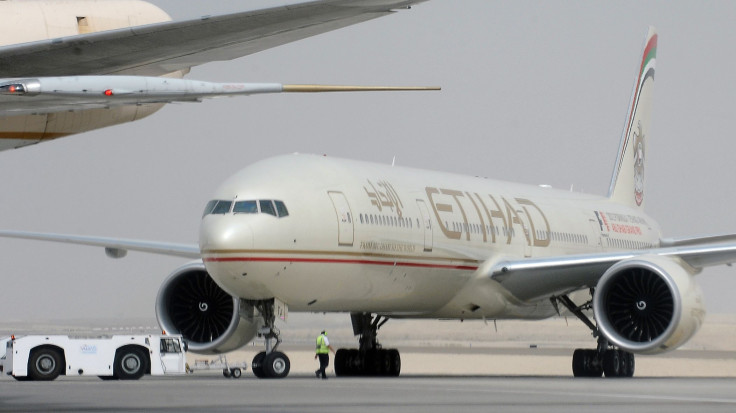Etihad Airways Joins Emirates In Halting Flights To Iraqi Kurdish Capital Of Erbil

Etihad Airways is suspending all flights, effective immediately, to the northern Iraqi city of Erbil, the Abu Dhabi-based airline said Thursday.
Etihad made the decision due to the “deteriorating security situation in the region as a result of ongoing military conflict between Iraqi security and ISIS forces,” it said in a statement. The airline’s flights to government-controlled Basra and Baghdad, however, are continuing as scheduled.
Militant group ISIS seized Iraq’s largest dam Thursday and has caused thousands of people to flee their homes this week. The United States is considering possible air strikes in the region. Erbil is the capital of the Kurdistan Regional Government, which is fighting ISIS.
“The safety of Etihad Airways’ passengers and staff is of paramount importance, and the airline will continue to monitor the security situation closely before recommencing scheduled services to and from Erbil," Etihad said in a statement.
Etihad joins Dubai-based counterpart Emirates, the largest airline in the region, which canceled its Erbil flights earlier this week for similar reasons. But two other major international carriers, Lufthansa and Qatar, are still flying to the city. (Lufthansa briefly suspended Erbil service last week, but has resumed operations.)
"Erbil lies well outside the direct crisis zone in Iraq, and flights to and from the city will be routed to avoid overflying the zone," the German carrier said on Sunday.
Last week, the U.S. Federal Aviation Administration ordered U.S. airlines that fly over Iraq to stay above 30,000 feet, a change from its previous restriction of flying above 20,000 feet. The new restriction came as a result of the “potentially hazardous situation created by the armed conflict in Iraq," the FAA said in a statement.
Both airlines and civil aviation authorities are increasingly cautious about flying over conflict regions since the downing of a commercial Malaysia Airlines flight that was shot down over war-torn eastern Ukraine in July, killing all 298 people on board. As a result, the civil aviation arm of the United Nations is convening a safety task force to make recommendations on how to gauge the risk of flying over conflict regions.
© Copyright IBTimes 2025. All rights reserved.



















